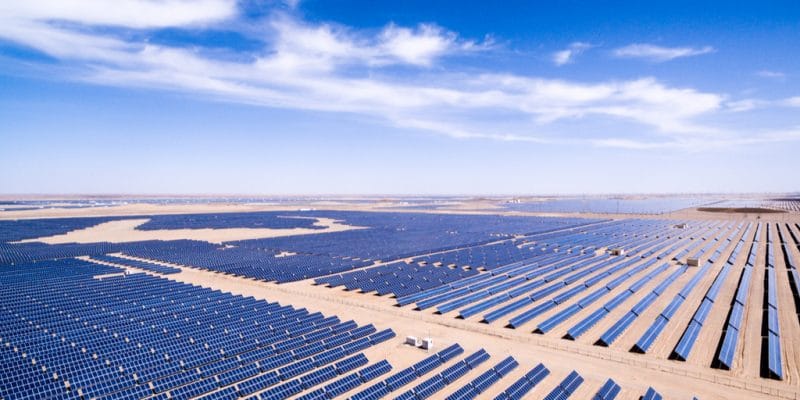
Political tensions and military conflicts breaking out across the globe constitute a new challenge to the humanity in their endeavor to reach the targeted sustainable development or at least to secure a stable business environment for the world to confront the chronic problems of resource scarcity particularly in food and energy leaving the earth and the new generations in front of an uncertain future.
Anyway, crises always create opportunities since they push us to think out of the box. For example, the shortfall of fossil fuel from Russia has convinced more countries to accelerate their transformation process towards more sustainable policies on both production as well as consumption fronts. It is clear that leaving the comfort zone of fossil fuel needs somehow a shock especially for MENA, a region traditionally well known for its abundant reserves of oil. The shock is double folded by estimated depletion of fossil fuel resources over the next few decades from one side and by increasing energy demand, water scarcity, and environmental challenges on the other side. Such crises threaten decades of rentier economy development with stagnation, recession or even contraction.
The good news, however, is that the Middle East and North Africa (MENA) region has a large potential for renewable energy. According to the International Renewable Energy Agency (IRENA), MENA is rich with such resources especially solar and wind power.
Egypt for instance, is one of the leading countries in the region in terms of renewable energy deployment and policy support. Egypt intends to increase the share of renewable energy in its electricity generation to 42% with solar providing 25%, wind 14%, and hydropower 2% by 2035. The country has also launched several large-scale solar and wind projects, such as the Benban Solar Park and the Zafarana Wind Farm, attracting both domestic and foreign investments.

Investing in renewable energy in Egypt can bring multiple economic benefits, such as:
- Profitability: Renewable energy sources do not depend on fuel prices or imports, and can reduce the electricity bills for consumers and businesses. Particularly with the ambitious plans of the Egyptian government to gradually lift the subsidies on electricity and petroleum derivatives consumption for vehicles, households and industry, the renewable energy investments will gain more competitiveness and profitability.
- Business Incentives: Renewable energy projects can create direct and indirect employment opportunities in various sectors, such as manufacturing, installation, engineering, and services. According to IRENA, Egypt could support over 300,000 jobs in the renewable energy sector by 2030. Renewable energy sources can reduce greenhouse gas emissions and air pollution, improving public health and mitigating climate change impacts in a way that support the government endeavours to meet the mandates of 2030 sustainable development agenda. Consequently, the government of Egypt is prioritizing the renewable energy sector with strong incentive package which entails better business environment and more flexibility.
- Expandability: Egypt is engaging in many production and distribution agreements with other MENA countries in addition to strategic partnerships with many African countries in the field of energy. In this regard, Egypt is a perfect hub for a huge market in the two intersected regions, Africa and Middle East.
Scope of Business:
The renewable energy industry is quite large in terms of subsectors and business types related to it. One example of such subsectors is the solar energy production and distribution which involves various businesses that provide different products and services. Some of the main types of businesses related to solar energy are:
- Solar panel manufacturers: These businesses produce solar cells, modules, and other components that capture and convert sunlight into electricity or heat. They may also provide installation and maintenance services for their products.
- Solar project developers: These businesses design, finance, build, and operate large-scale solar power plants, such as concentrated solar power (CSP) or photovoltaic (PV) farms. They may also sell or lease the electricity generated by their plants to utilities or customers.
- Solar installers and integrators: These businesses install and connect solar systems for residential, commercial, or industrial customers. They may also offer consulting, engineering, and permitting services for their projects.
- Solar distributors and retailers: These businesses sell or distribute solar products and systems to customers or installers. They may also provide after-sales support, warranty, and repair services for their products.
- Solar service providers: These businesses offer various services related to solar energy, such as monitoring, testing, cleaning, recycling, or training. They may also provide software or hardware solutions for optimizing the performance and efficiency of solar systems.
The Renewable Energy Really Matters:
On the macro geoeconomic axis, Egypt and other MENA need to benefit from regional cooperation in renewable energy trade with each other. Such cooperation can:
- Enhance grid stability and reliability: Interconnecting grids and trading electricity can help balance supply and demand, especially for intermittent renewable sources like solar and wind.
- Reduce investment costs: Sharing infrastructure and resources can lower the capital and operational costs of renewable energy projects, as well as increase economies of scale and market size.
- Foster knowledge transfer and innovation: Collaborating on renewable energy development can facilitate the exchange of best practices, technologies, and skills among countries, as well as stimulate research and innovation.
- Promote regional integration and peace: Engaging in renewable energy trade can strengthen political and economic ties among countries, as well as reduce conflicts over scarce resources like water and oil.
In Brief:
To conclude, we urge the governments as well as the entrepreneurs and financing institution to pay closer attention to the vast potentials in MENA and Africa where the gap between the demand and the supply of renewable energy can be filled with hundreds of mega projects that can totally alter the socio-economic future of this centric piece of the world.
For cooperation related to your business in renewable energy in Egypt or in India, Contact Us Now!





